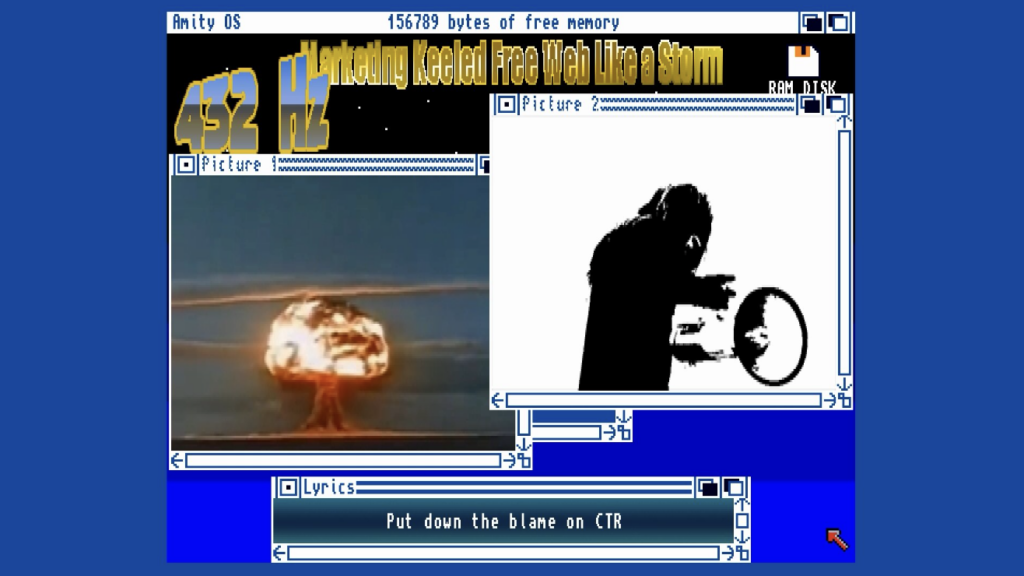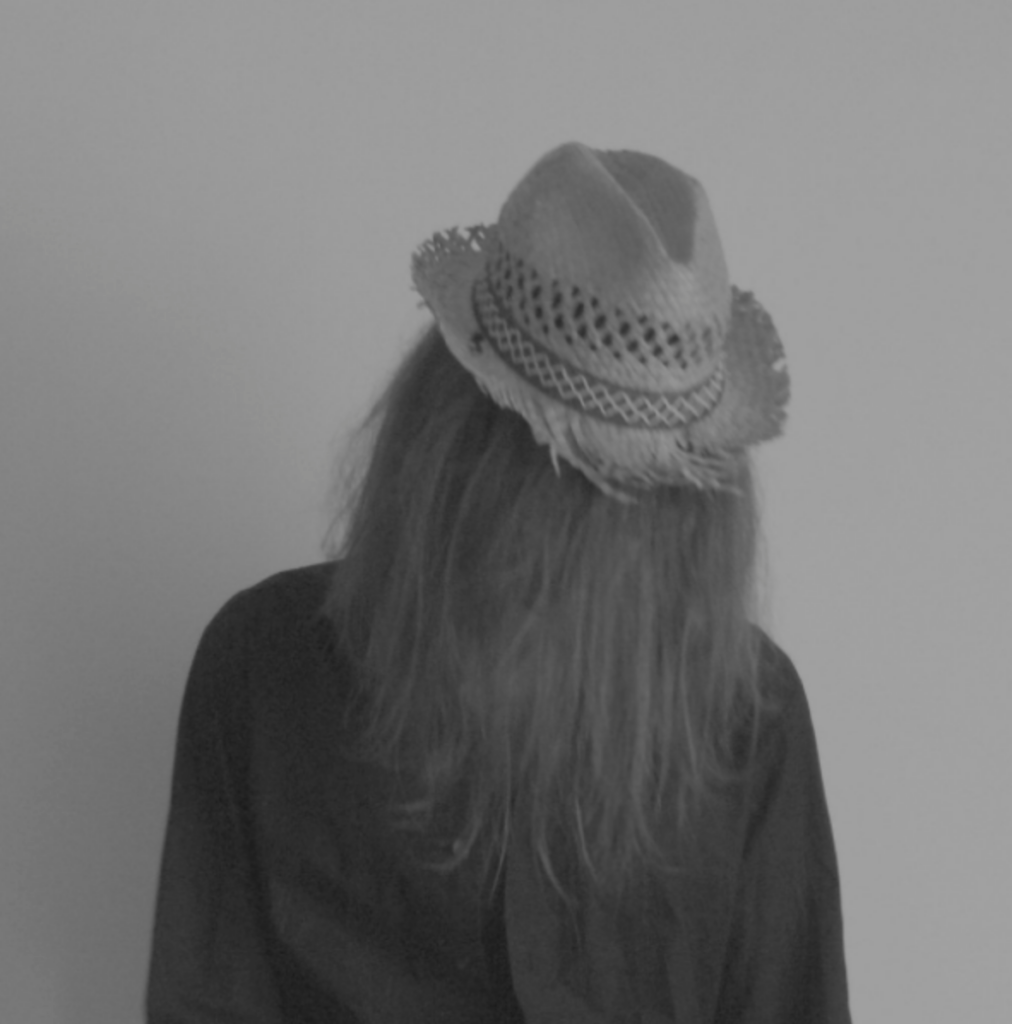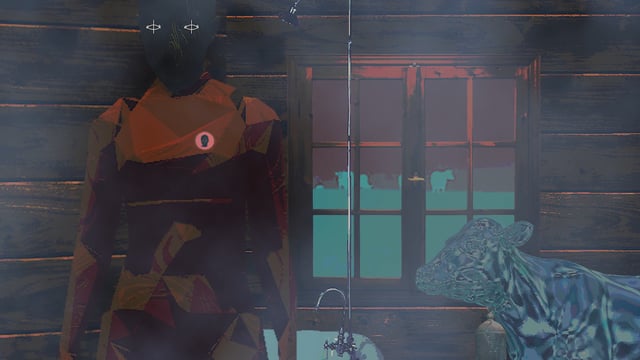Digital America interviewed Benna Gaean Maris in November 2023 about their piece Marketing Keeled Free Web Like a Storm (2022).
:::

Digital America: Your piece, Marketing Keeled Free Web Like a Storm (2022), is a parody of The Buggles’ cult song Video Killed the Radio Star (1979), that comments on the impact of marketing and commercialization on what was once a free and open online space. What motivated you to explore the theme of marketing’s impact on the internet through parody?
Benna Gaean Maris: The evolution of telematics into a marketing and financial tool has totally impacted how we can enjoy the whole Internet, requiring a constant concern to protect privacy, since security becomes paramount when you deal with money. Nowadays, people are GPS located, IP tracked, monitored, profiled, triangulated, asked for cell-phone numbers, security questions, double-step verification codes and human tests, but yet all these measures cannot prevent security issues and, guess what, security became the right pretext for a totalitarian governance to control and snatch you. Not so in the early Internet, when everything was clear, simple and nice, and a password was the only requirement for security, not even browser cookies did exist. Witnessing how these complications gradually turned Internet into a pain, the need to pour out this telematic lamentation became always more urgent. One day in 2018 while I was listening to “Video Killed the Radio Star”, the idea took shape: the parallelism between this feeling and the radio outdated by TV was clear, so I started to elaborate the parody lyrics, quite easily since I am always inclined to find side meanings and pun sarcastically, and the topics where so many. But it was only in 2022 that I perfected the lyrics and arranged the music, then I started to make the video.
DAJ: The song touches on the tension between the past and present of the internet. How has technology, particularly the internet, influenced your music and artistic expression over time? How do you stay creative?
BGM: Preamble: I am a computer technician (or was, until my interests diversified.) Still a child I studied electronics, Boolean logics, then microprocessors, machine code and other programming languages. Since ever I also had an inclination to artistic expression, and the Amiga home computer was the first machine that permitted me to apply computing to art quite satisfyingly. While visual graphics was surely my principal interest, I can say that some of my first digital creations have been music compositions, using basic soundtrackers essentially similar to the one I used for “Marketing Keeled Free Web Like a Storm”, a return to origins, as today I mainly use MIDI editors.
So, technology is obviously part of my culture, the culture of this epoch, but I consider the Internet just a new channel where culture flows, like word of mouth, the press, radio or television are, so we should care more about which culture runs inside these pipes. The Internet has been a revolutionary tool, a great opportunity for knowledge, to understand the world and to share culture, and still it is, but, even more than television or the press, it is becoming a behemoth carnival of servile hypocrisy.
I think that as I had lost soon any interest in the press and television, I could find myself fed-up also of the Internet, and shelve it. After all, my creativity is essentially inspired by intimate ethics and meditations on the cosmic essence of things, although I must admit that the bad aspects of modernity motivate my artistic expression much, as you can see.
DAJ: As someone who was born in the early 2000s, I feel that I have grown up with the digital world being overtaken by large search engines and digital consumerism. How do you personally approach or suggest fighting against the trap of using the internet in the way that companies assume we will?
BGM: Things could change if an insurgence of people globally organized in a world movement would demand the relocation to the open-source and to the people of the whole governance of a mankind heritage like the Internet should be, plus demanding the respect of fundamental rights (to which people implicitly renounce, for example, when they sign a private contract to sign-up on a social network) so that the single user would determine how to use it. Otherwise, to me the Internet is burned out already: nobody ever attempted to change or oppose commercial television, nor the subservient press, therefore also the internet more probably will stay and become always more the very base of mass control, an interface with institutions, corporations and the economic system.
A personal approach, finding stratagems or averting, may work for oneself, but individuals should unite in a huge world movement if they want to change a huge global system. The problem is that today people try to unite using the same media controlled by that system.
We ca see many people now adhering to the movement of living unplugged: a hard choice, as soon anyone living without a smartphone or a cell-phone, as I do, will be marginalized, will become a misfit. In any case, I feel fit being a misfit.
Who knows, maybe a new underground technology will come to light, so that people could abandon the ship of fools. Imagine a home-made quantum communication system, a peer-to-peer net at entanglement speed. But whatever it is, it will be a new land of freedom and opportunities as long as it stays unregulated and anyone can build a transceiver. I believe that new technologies (like many music bands) are good until profit spots and spoils them.
DAJ: How do your personal interests in philosophy, metaphysics, and more influence the themes and styles in your diverse portfolio?
BGM: Philosophically speaking, the reason why we live in an exploitative world is that most people believe in a master-servant scheme: while greedy people thrive making meek people work in their stead, meek people acquiesce and are happy with token rewards for respecting the rules of this role game, possibly to become masters one day, in a pyramidal hierarchy.
I never accepted that, I never liked hierarchies, classes and specializations, not to be commanded nor to command, because I like to think but I also like to work, to put my ideas into practice, I like to be independent and I oppose anyone trying to meddle with my life.
Beside philosophy, the search for harmony with nature and cosmic balance is another inspiration for my art expression.
Further, as said, an intimate metaphysical research, pertaining the thin spheres beyond sensory reality and physical appearance, is also very important and at the core of my creativity. I believe that you cannot be creative if you do not have ethics and beliefs.
And since concepts are abstract, I feel free to represent them the way I like or I consider more apt for the purpose, this is why my expression is so diverse, both in styles and disciplines. I also do not agree with the commonplace of adopting a unique artistic style to be recognizable, as this is most of the times opportunistic and insincere like marketing, boring and in the end self-incarcerating.
DAJ: I see the contrast between then and now, as depicted through pixelation, outdated UIs, and windows. How do you envision your audience, especially the next generations of users, regarding the evolution of digital culture and its impact on our lives?
BGM: The evident artificiality of low resolution graphics and approximated color palettes kept you detached, not absorbed by the virtual reality in the screen, the window framing your field of interest. As human beings can estrange conscience to enter another dimension, like when you are watching a movie, with digital graphics surpassing the eye resolution and the screen frame removed in immersive environments, along a photo-realism that seems more credible than the real, I think that many people will find more attractive a digital life, a virtual reality, than a tough and ordinary natural reality. Just imagine how those who stumble upon you absorbed by their smartphone will behave when in a few years we could have programs (or well, companies) automatically generating in real-time the whole entertainment system and ads, ruling your economy, strong of a deep knowledge of the human sphere, hopes and desires, individually tailoring customized dreams instantly. It feels parasitic.
Since this cognitive warfare trend does not seem to stop, I would prefer not to envision an audience like that, rather try to educate it.
Further, nano- neuro- bio- and genetic technologies could soon make the virtuality a “natural” transhumanistic extension, without the need of a device, a time when people will be totally owned by corporations. I am confident that such a dystopian future will exist just inside dichotomous minds, but the real risk right now is that the system is already hindering people’s chances to metaphysically or spiritually evolve: mankind still have to become aware of the sensory illusion of natural reality (several artists tried to explain that) distracted enough by the construct of society, and they just get trapped into other shiny colorful virtualities. Knowledge must not be the way, but the way out.
DAJ: Can you talk a bit about what you’re working on now?
BGM: I recently finished another parody cover song with video and other paper works, and right now I’m taking a rest. This is not an unproductive time, since during rests I use to think, observe and ponder on this society, noting down thoughts, feelings, concepts, ideas for new artworks, sometimes small poems. This is the most important part of my research, and it needs slow times to let ideas decant and become ripe, as you might find that many of my artworks took years before coming to light after the initial conception. So I read and change my notes many times until something will be ready, you never know when that happens but I have noted down more artistic ideas than I could ever produce in a thousand years, so, stay tuned!
:::
Check out Marketing Keeled Free Web Like a Storm by Benna Gaean Maris.
:::

Benna Gaean Maris is a self-described “Interdisciplinary being” who has exhibited internationally with the purpose of raising awareness on metaphysical, human, social, and environmental issues, favoring the use of poor materials through minimalism.



